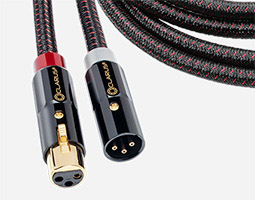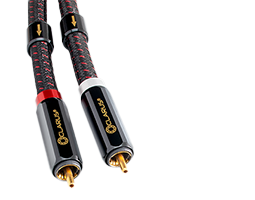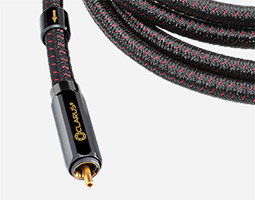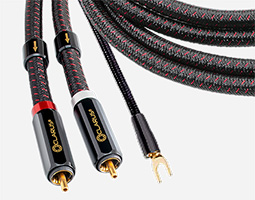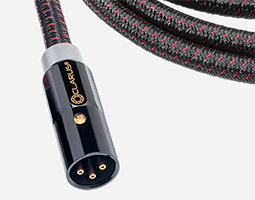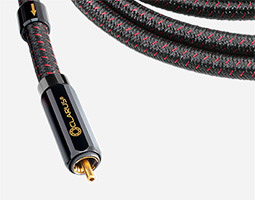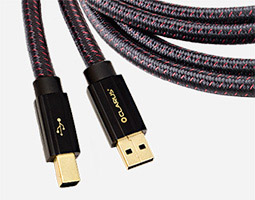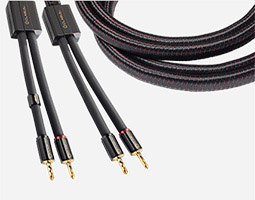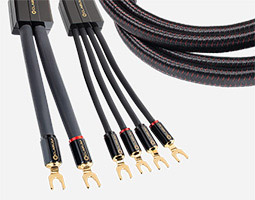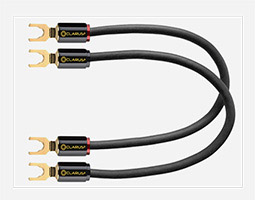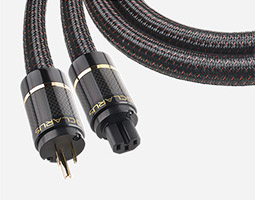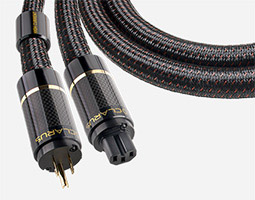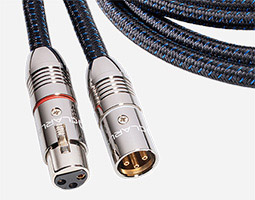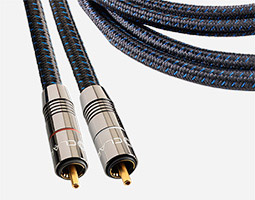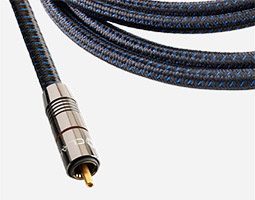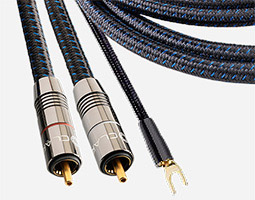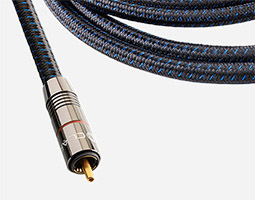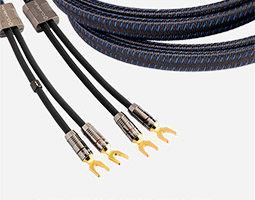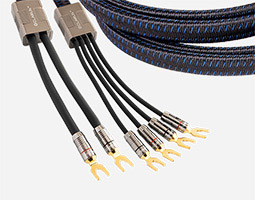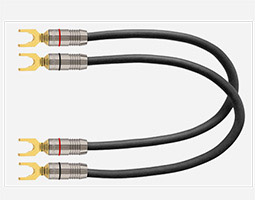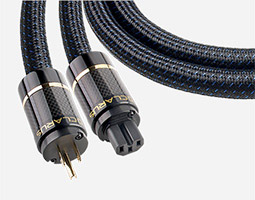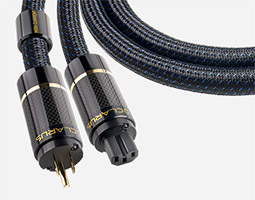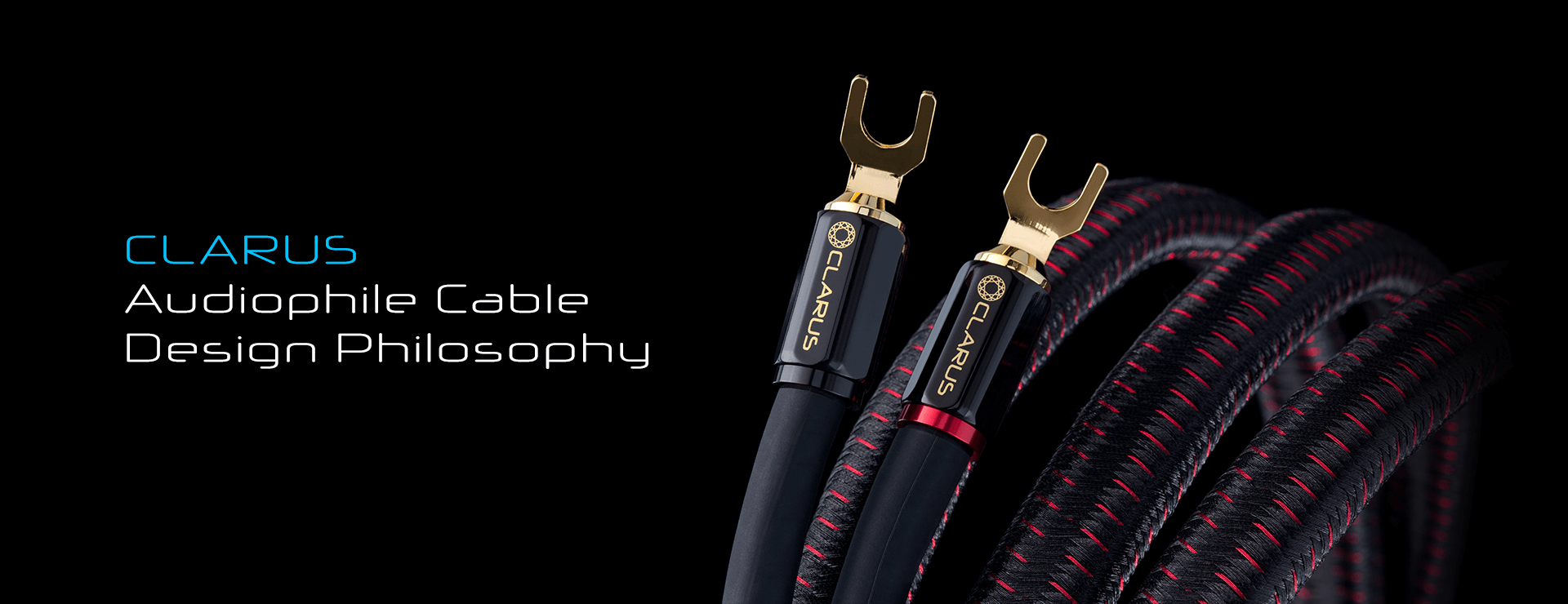
We didn’t create Clarus for its visual splendor or even for its technology; we did it because we love music.
MEET JAY VICTOR
The Expert Behind Clarus Cable Designs
Jay Victor, the engineering expertise behind the development of the Clarus analog, digital, speaker, and power cables. Holder of approximately 50 patents for cable geometry, his background includes twelve years of intensive engineering work on x-ray cables and wire harnesses, proprietary connectors, and scientific test instruments.

“I am a musician and a life-long music fanatic. Being a technically-minded person and an engineer, it was inevitable that hi-fi audio equipment would become a major preoccupation. If music has significant value in your life, then realistic reproduction becomes an obsession. This obsession is what goes into the cables that I design—a relentless pursuit of perfection in reproducing the sound of real music.”
– Jay Victor –
Clarus Seeks Balance and Neutrality
Clarus cables are designed to support fine details, rich overtones, full dynamic range, and a visual soundstage; but most importantly, they must have a high degree of balance to achieve a sound as close as possible to live music. Lows should be well defined, extended and tight. Mids should be full and warm, as in real life, with highs that are extended without being excessively bright or harsh. When balance is lost, music becomes harsh or monotonous and spatially confined. To transmit signal via a conductor at a balanced and true-fidelity, acoustic frequency range, requires a cable design that provides a path for each frequency range with the least amount of change to the musical signal. The goal of Clarus cable designs is to add nothing, subtract nothing while seeking balance and neutrality.
Clarus Found Balance and Clarity over Decades of Listening
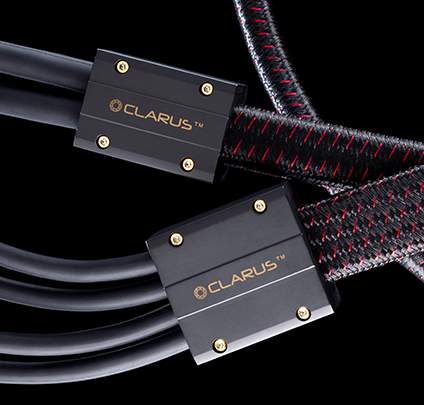
Clarus cable design was developed over decades of experimentation and listening tests. Virtually all high-end audio cables on the market today use a combination of various gauges of solid round copper conductors. Listening to different wire gauges individually, you will hear they all sound different. Large gauge solid conductors tend to have a lot of bass, with muted high frequencies. Medium gauge conductors tend to have less bass, more mid-range, and muted high frequencies. Fine gauge conductors tend to reproduce high frequencies fairly well, but have little bass and muted mid-range. The reasons for this are not clearly agreed upon, but theories have long been presented that mostly relate to “Skin-Effect”. Although theoretically, this should have no bearing within the audio range, listening, seems to indicate otherwise. If it is widely accepted among cable designers that different wire gauges, have different frequency balances; and if it is established that conductor size has influence on sound, it is not hard to imagine that the shape of the conductor might also play a roll. This is subject of many of Jay Victor’s patents and the cornerstone of Clarus cable design.
Distinctly Different Conductor Types—Uniquely Clarus
The key to the outstanding performance of Clarus cables is not only the size of each conductor and its physical relationship to other conductors within the same cable, but with its conductor shape. Because of skin effect, it is commonly understood that large round conductors have a higher degree of magnetic flux that concentrates the signal in the center of the conductor, effectively choking off the higher frequencies while supporting bass frequencies. Therefore, it is reasonable to conclude that a flat conductor which has no magnetic center, may tend to prevent the concentration of low frequencies and give a sonically different response. In listening tests, flat conductors tend to reproduce the mid-range particularly well. Since high frequencies travel on the surface of the conductor, it is best to remove the center, leaving only the surface. This was achieved by spiral wrapping a very thin special copper foil over a non-conductive core resulting in a flexible tube having both inside and outside surfaces. Clarus patented analog audio and speaker cable designs incorporate these three distinctly different shapes of conductors. Each conductor is individually insulated to prevent coloration caused by interaction with adjacent frequency ranges.
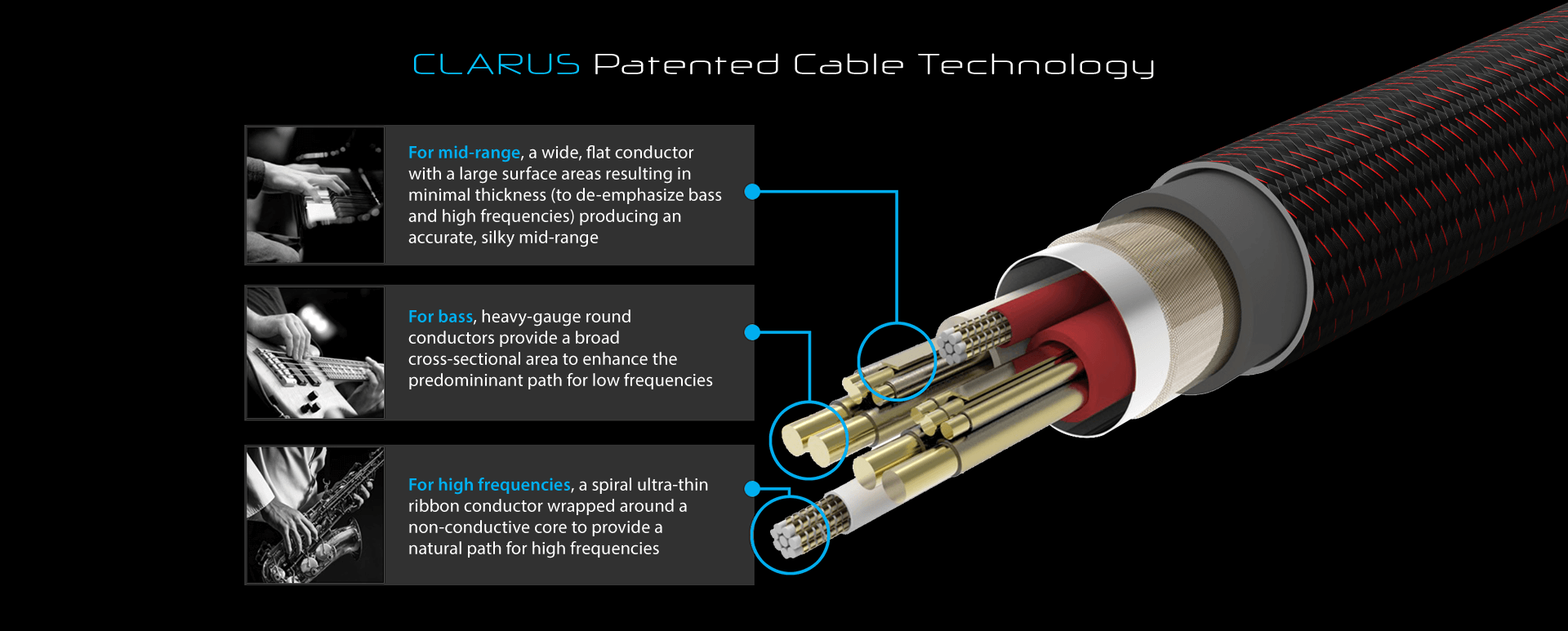
Clarus Cable’s Purposeful Design
Each cable was designed specifically for its intended purpose, and thus, geometry, gauge and materials vary from cable to cable. Picking the correct ratio and combination of shapes and gauges of conductors is critical and required many hours of listening tests to finalize the design. The designs for digital, subwoofer, and power cables were created with a mix of conductors optimized specifically to support the unique requirements of each cable. Through meticulous engineering and years of careful evaluation, testing, and listening, each Clarus cable design dramatically elevates clarity, and the resulting sound is exceptionally open and transparent.
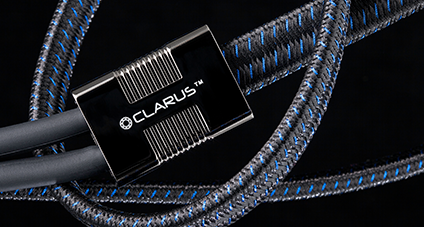
Clarus Uses the Purest Copper Available
Clarus designs cables for discriminating audiophiles. Through extensive listening, Clarus exclusively chose copper for its analog cables because of its warm, natural sound. Clarus uses the purest copper available, known as Pure Continuous Cast Copper (PCCC) which uses a unique heated mold extrusion process that creates substantial lengths of single-crystal copper. PCCC is directional, free of impurities, flexible, corrosion-resistant, has low electrical resistance, and non-crystal boundaries that are structurally perfect. Silver conductors favor high frequencies, but when incorporated in analog cables silver sounded overly bright, however, due to the high frequency demands of digital audio signals, Clarus uses ultra-pure silver plating which lowers the resistance to dramatically increase signal transfer. Sonically the sound is smooth and fluent as well as more dynamic.
State of the Art Terminations
Clarus Mark II Balanced Audio, AES EBU, Single-Ended RCA, Digital Audio, Subwoofer, Speaker and Power cables are all terminated in the USA with patented connector designs that use advanced materials. Signal contacts are made with high-purity and high-conductivity tellurium (TE) copper providing very low resistance and superior sound characteristics. Light-weight, springy and high-conductivity beryllium (BE) copper provides a solid contact with low-loss signal transfer. Clarus MKII delivers improved signal transfer, resulting in improved sound quality and long-term reliability.
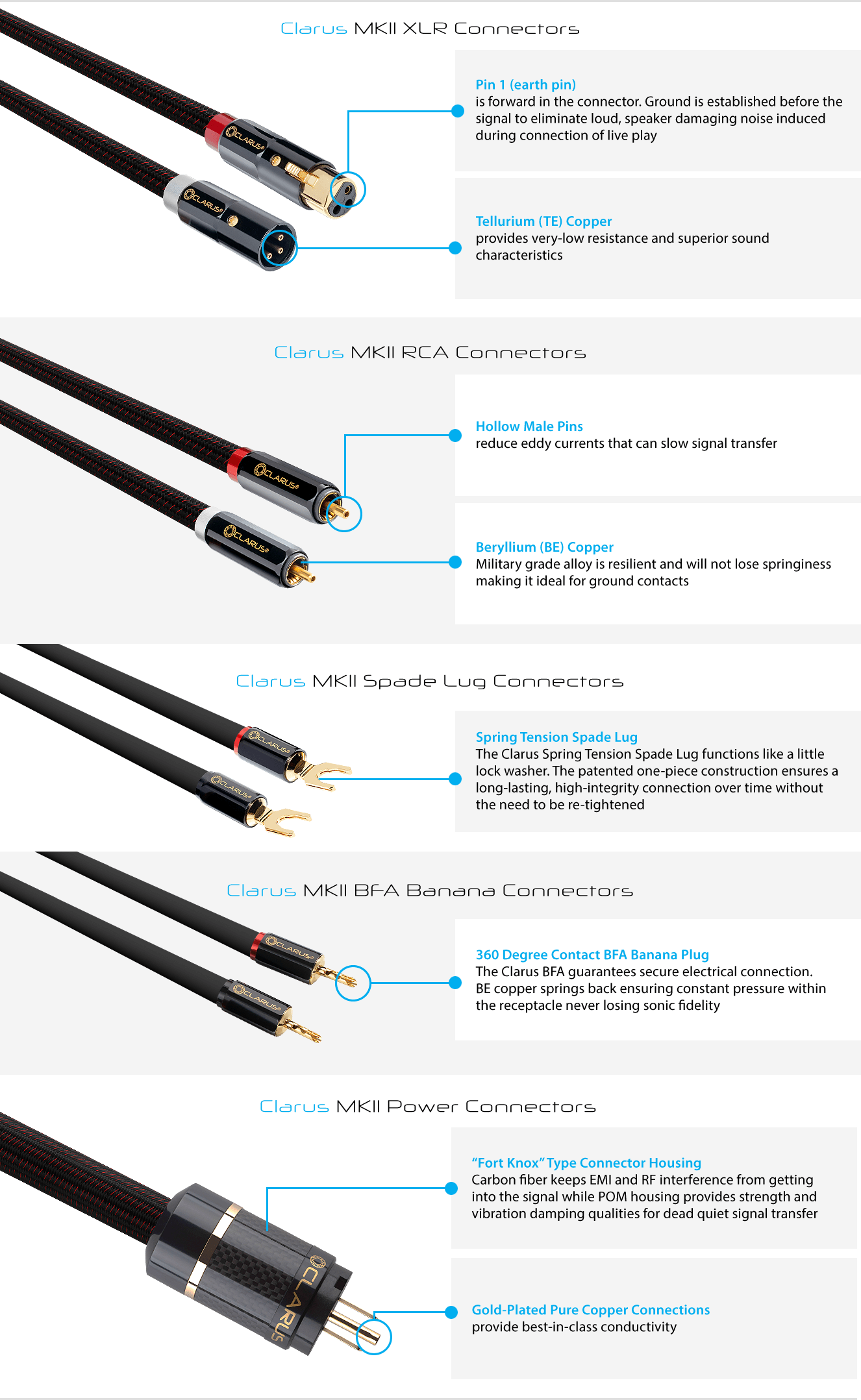
The Unmatched Performance of Clarus Cables
The Clarus Audiophile Collection of high-performance cables is in a class by itself—no other high-end audio cable can match its revolutionary design and superior sound reproduction. So, if you’re a discerning audiophile who demands nothing less than the ultimate listening experience, we invite you to experience Clarus cables. Your appreciation of fine entertainment will never be the same.

Clarus Crimson Cables—The Most Exceptional High-End Audio Cables on the Market
Clarus designs, engineers, and crafts each Crimson series cable to provide the ultimate listening experience for discerning audiophiles. The cables feature an innovative multi-gauge design that uses three uniquely shaped and individually insulated conductor types, resulting in superior bass, midrange, and high frequencies. In addition to ultra-low-distortion PCCC, we created Crimson cables with a proprietary precision-formulated polyethylene (PE) insulation providing low loss, superior imaging, and superlative sound definition. No other audiophile-grade cables feature the innovative engineering breakthroughs and enhanced high-end performance of Clarus Crimson.
crimson Analog Audio
crimson Digital Audio
crimson Speaker Cables
crimson Power Cables

Clarus Aqua Cables—Exquisite Sound Reproduction for Discriminating Audiophiles
Clarus Aqua cables provide many of the same unique performance features as the Crimson series but feature slightly smaller wire gauges—however, there was no shrink ray involved. Clarus engineers went through an arduous design and evaluation process to distill the highest level of performance from the distinct topology of each Aqua cable design. Like the Crimson cables, Aqua cables feature a multi-gauge design using three uniquely shaped and individually insulated conductors, resulting in superior bass, midrange, and high frequencies for exceptional imaging and definition across the spectrum of sound. The use of ultra-low-distortion PCCC conductors enhances clarity, while precision-formulated polyethylene (PE) insulation results in low loss, superior imaging, and superlative sound definition. No other audiophile-grade cables offer the patented design breakthroughs and sound reproduction of Clarus Aqua (well, except for Clarus Crimson cables)!

